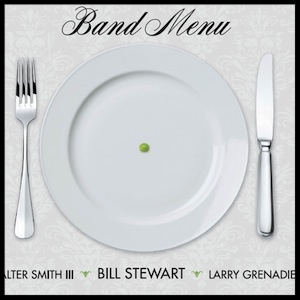Label: True Sound Recordings, 2018
Personnel - Jason Kao Hwang: violin; Taylor Ho Bynum: cornet, flugelhorn; Steve Swell: trombone; Joseph Daley: tuba; Sun Li: pipa; Wang Guowei: erhu; Ken Filiano: bass; Andrew Drury: drums.
Violinist Jason Kao Hwang has been a continuous presence in the New York’s Lower East Side avant-garde scene. His last recording, Sing House, deserved the respect of the media, featuring a quintet whose members, with exception of pianist Chris Forbes, are also part of his newest work, Blood, a composite of creative jazz, free improvisation, and Chinese traditional music. Thus, in addition to trombonist Steve Swell, bassist Ken Filiano, and drummer Andrew Drury - the eight-piece Burning Bridge ensemble includes tuba player Joseph Daley, cornetist Taylor Ho Bynum, pipa player Sun Li, and erhu artist Wang Guowei.
Hwang meditated upon the emotional traumas of war, taking into consideration the tormenting experiences of fellow musicians Billy Bang and Butch Morris in Vietnam as well as his own mother’s in WWII. The album consists in a continuous track that was divided into five pieces and titled for convenience.
“Breath Within The Bomb” kicks off with warlike percussion, which mixed with the severe, serrated sounds of Filiano’s bowed bass and Swell’s deep notes, augments the claustrophobic sensations of being trapped in a devastating reality. As it moves forward, the tune acquires a passive Asian-flavored taste, only to become moderately cacophonous in a passage where Drury’s drum activity exhibits a ferocious, kinetic energy. Tranquility returns at the end with an Eastern-infused dialogue between violin and erhu.
Divided into two parts of approximately seven minutes each, “Surge” is initially designed through orchestral slides and rhythmic accents before granting fine improvisations by Hwang, Bynum, and Guowei over a Sun Ra-inspired rhythm. Daley’s deep tuba sounds populates the second part with an extemporaneous urge.
If, to this point, haunting pictures were created through chiaroscuro sonic treatments, then “Evolution” eases things up by rooting a groovy jazz bass in American soil. The blues-based structure becomes an excellent vehicle for Bynum’s explorative yet melodically charged solo, Sun Li’s dissertation, as well as for Hwang’s bluesy stretches with fair responses from the band. The concluding “Declarations” encompasses Filiano’s outstanding arco rumination and Daley’s extended tuba stretch, among other things.
By constantly alternating the density of the orchestrations, Hwang suggests different scenarios that correspond to transformative states of mind. The thrills of spontaneity come from individual statements but also from interspersed interlocutions with two or three musicians. After all, this is music of exploration and reflection.
Grade B
Favorite Tracks:
01 - Breath Within The Bomb ► 02 – Surge Pt. 1 ► 04 - Evolution








































